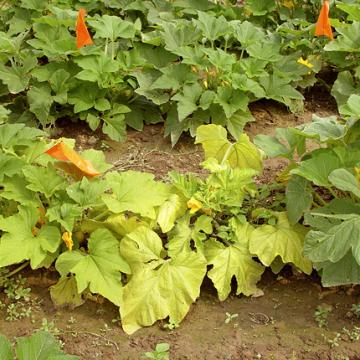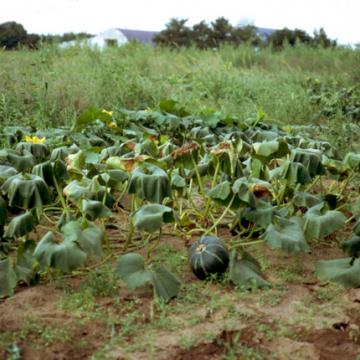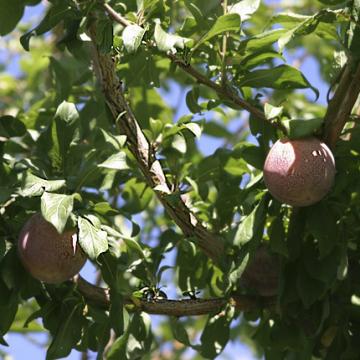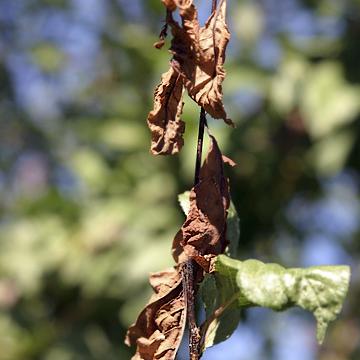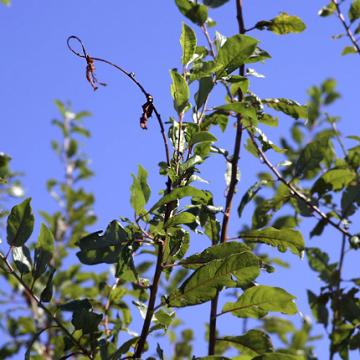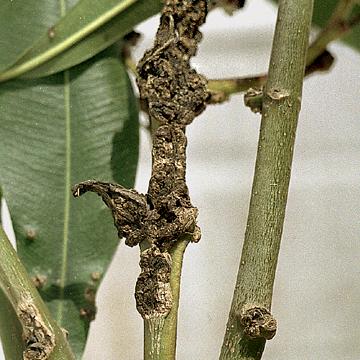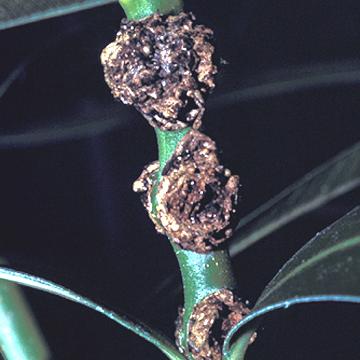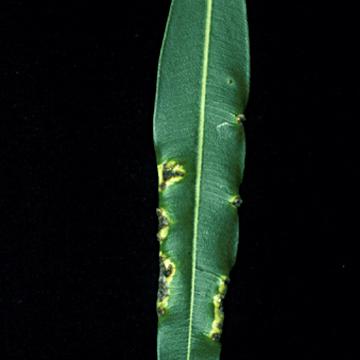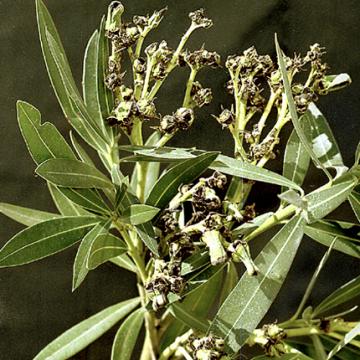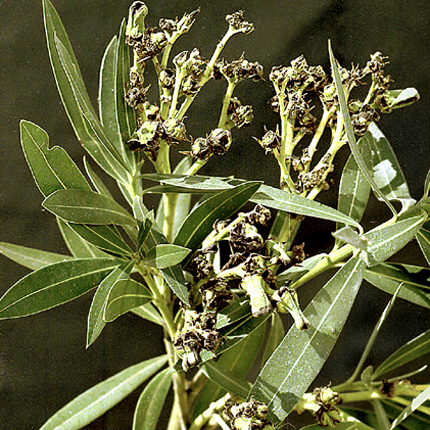DISEASE: Aster yellows
HOST: Squash
Diagnostic characteristics for the disease are yellowing of young leaves, proliferation of secondary shoots, and rigid erect habit. Leaves are misshapen and smaller than normal and have stiff, thick laminae.
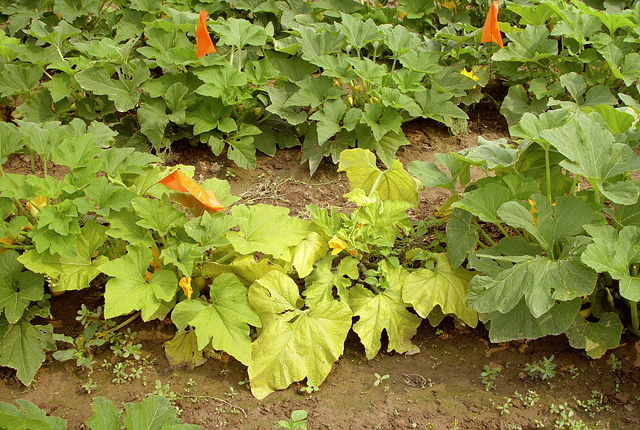
Aster yellows | Squash
DISEASE: Aster yellows
HOST: Squash (Cucurbita sp.)
PATHOGEN: 'Candidatus Phytoplasma asteris'
PATHOGEN SYNONYM: Phytoplasma Aster yellows group
SOURCE: S. Miller
DISEASE: Bacterial wilt
HOST: Squash
Field with severe symptoms of wilt. Foliage often is chlorotic and leaf margins may be chlorotic and necrotic before plant death. Bacterial ooze may be seen streaming from the xylem when infected stems are cut.
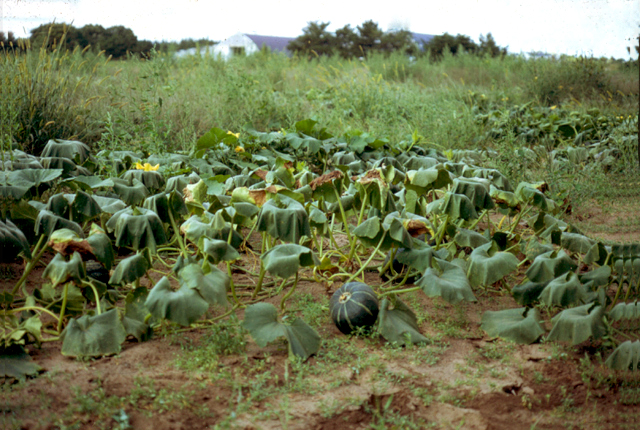
Bacterial wilt | Squash
DISEASE: Bacterial wilt
HOST: Squash (Cucurbita maxima)
PATHOGEN: Erwinia tracheiphila
SOURCE: B. Jacobsen, M. Shurtleff
DISEASE: Fire blight
HOST: Pluot
Fire blight cankers on major limb. Pluot is an interspecific hybrid of plum and apricot.
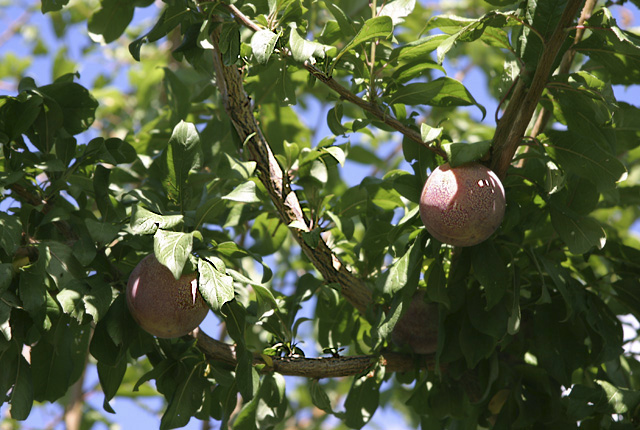
Fire blight | Pluot
DISEASE: Fire blight
HOST: Pluot (Prunus hybrid 'Dandy Dapple')
PATHOGEN: Erwinia amylovora
SOURCE: S. Mohan
DISEASE: Fire blight
HOST: Pluot
Dead shoot, the result of systemic infection.
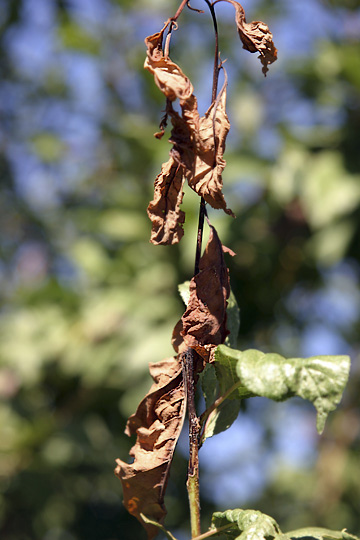
Fire blight | Pluot
DISEASE: Fire blight
HOST: Pluot (Prunus hybrid 'Dandy Dapple')
PATHOGEN: Erwinia amylovora
SOURCE: S. Mohan
DISEASE: Fire blight
HOST: Pluot
Typical symptoms of fire blight-infected shoot.
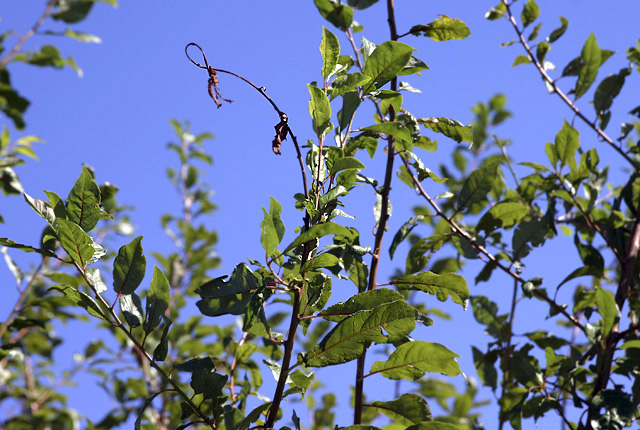
Fire blight | Pluot
DISEASE: Fire blight
HOST: Pluot (Prunus hybrid 'Dandy Dapple')
PATHOGEN: Erwinia amylovora
SOURCE: S. Mohan
DISEASE: Oleander knot
HOST: Oleander
Oleander with small knots/galls on leaf and stems.
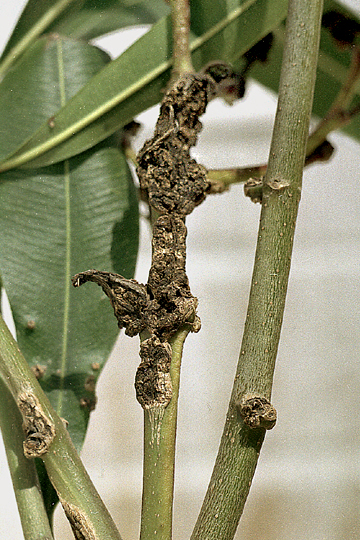
Oleander knot | Oleander
DISEASE: Oleander knot
HOST: Oleander (Nerium oleander)
PATHOGEN: Pseudomonas savastanoi pv. nerii
SOURCE: W. Sinclair
DISEASE: Oleander knot
HOST: Oleander
Young stem with knots/galls.
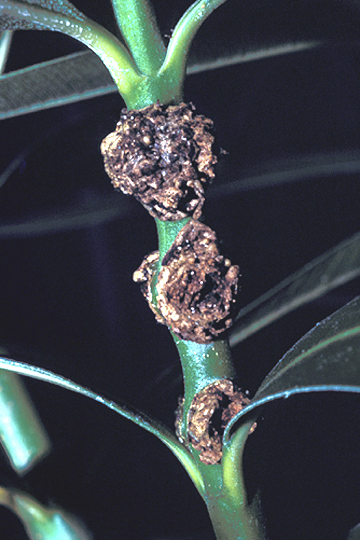
Oleander knot | Oleander
DISEASE: Oleander knot
HOST: Oleander (Nerium oleander)
PATHOGEN: Pseudomonas savastanoi pv. nerii
SOURCE: R. Raabe
DISEASE: Oleander knot
HOST: Oleander
Leaf with early stage of knot/gall formation.
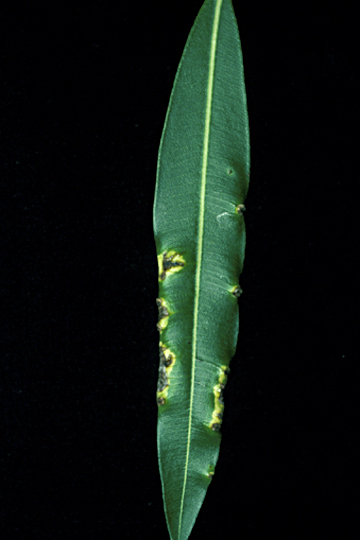
Oleander knot | Oleander
DISEASE: Oleander knot
HOST: Oleander (Nerium oleander)
PATHOGEN: Pseudomonas savastanoi pv. nerii
SOURCE: R. Raabe


